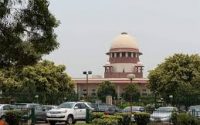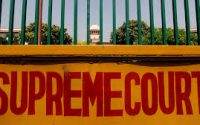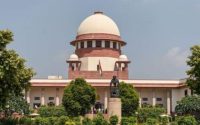$100 Website Offer
Get your personal website + domain for just $100.
Limited Time Offer!
Claim Your Website NowMichigan doctor, lawyer testify on Barrett’s Supreme Court confirmation
Source:-https://www.michiganadvance.com
WASHINGTON — Two Michigan residents — a family physician and a former law clerk — testified virtually before the Senate Judiciary Committee on Thursday as the panel wrapped up its consideration of whether Judge Amy Coney Barrett should be confirmed to the U.S. Supreme Court.
Dr. Farhan Bhatti was tapped by Democrats who say Barrett’s appointment endangers the fate of the Affordable Care Act, and he told senators about how that health care law has helped his patients.
On the other side was Grand Rapids lawyer Amanda Rauh-Bieri, who clerked for Barrett when the 48-year-old judge first joined the 7th Circuit Court of Appeals. Rauh-Bieri made a personal case for Barrett’s confirmation, praising her work ethic and character.
Bhatti, a Lansing physician, urged the panel to oppose confirming anyone who would strike down the health care law, which is being challenged again in a case coming before Supreme Court justices next month.
Bhatti also is a board member of the Committee to Protect Medicare, which advocates for public health care options and the health care law.
I can’t talk with expertise about concepts like originalism or textualism,” Bhatti said, referring to the legal theories of Barrett’s judicial philosophy. “As a doctor, however, I can talk about the real-world harm of ending the ACA.”
Barrett during the two days of questioning by the committee’s lawmakers said that she has not been asked by President Donald Trump, who has vowed to undo the 2010 health care law, to rule in a particular way on the upcoming case challenging its constitutionality, adding that she is “not hostile to the ACA.”
Rauh-Bieri, now an associate at Miller Canfield, recalled Barrett as someone who “never takes a shortcut” and would frequently be at the office before her earliest-rising law clerks. She described Barrett as a judge who encouraged clerks to voice differing opinions, and who showed respect to her clerks by walking from her office to theirs to seek their views on thorny legal issues.
The former clerk said working for Barrett had a deep effect on her, after spending law school filled with doubts about her own potential as an attorney.
“I wasn’t certain I had what it took to succeed,” she said. “Judge Barrett changed that for me. Her example and mentorship inspired in me confidence I didn’t know I had.”
The two Michigan residents were part of a pair of panels on the final day of Barrett’s confirmation hearings. Others testifying included a law professor and judge who worked with Barrett; one of her former law students; other health care advocates; and attorneys from the American Bar Association, who testified about the nominee’s “well-qualified” rating from the organization.
The Judiciary Committee is set to vote on Barrett’s nomination on Oct. 22. The expected “yes” vote would set up a quick vote by the full Senate, where she is expected to be confirmed by the Republican majority.
There were few questions Thursday after two lengthy days of back-and-forth between Barrett and senators on Tuesday and Wednesday.
After Bhatti described two of his patients who benefited from the expanded Medicaid eligibility allowed under the ACA, U.S. Sen. Dianne Feinstein of California, the top Democrat on Judiciary, asked him to speak further about the importance of access to health care during the coronavirus pandemic and about the broader steps needed to mitigate health risks.
Bhatti responded by talking about the need for mask use and social distancing, specifically urging all members of Congress to wear masks and avoid large rallies, saying they have “an obligation to lead by example.”
Judiciary Chair Lindsey Graham, (R-S.C.), jumped in as Bhatti concluded, asking if his directive also applied to protests and rioting — reprising a charge by Republicans that Democrats have had a double standard in supporting protests against police brutality, even if those gatherings have featured more consistent mask-wearing, although they have not always followed social-distancing guidelines.
Bhatti replied that he was referring to any large gatherings, adding: “I don’t support rioting, if that’s what you’re asking.”
Related Posts

Supreme Court slams Gautam Khaitan’s lawyer in black money case

Social Media Should Be Regulated, Supreme Court Says as It Asks Centre for Draft Rules Timeline

